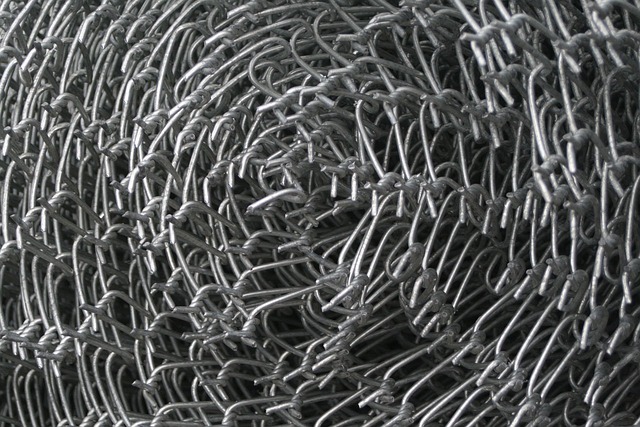
What Gauge Should You Use for a Chain Link Fence?
If you’re shopping for a chain link fence, you’ve probably discovered that there are many different specifications and options. One of the more common questions people have when deciding which fence is right for their job is what gauge should you use for a chain link fence.
That’s a great question, and it will definitely affect the security and longevity of your chain link fence. So here’s all the answers to the question of what gauge should you use for a chain link fence.
What Is Chain Link Gauge?
The first thing we need to discuss is what chain link gauge is.
This is a term that refers to the thickness of the wire that the chain link mesh is woven out of.
Chain link fence fabric is made from a very large machine that is almost like a knitting machine. It takes the raw wire that will become the fence fabric, and it weaves it into a seamless wire mesh cloth.
This process can be done with several different wire thicknesses and types, and in some parts of the world, those thicknesses are known as wire gauge.
Why Does Chain Link Wire Gauge Matter?
Chain link wire gauge matters because it affects the security and durability of the fence. When combined with other factors like mesh aperture, a thicker chain link gauge will provide more security at a higher cost, while a thinner gauge chain link fabric will be lower security and less expensive.
A thicker wire gauge will be harder to cut, and it will take longer to corrode and weaken.
Chain link wire gauge also increases the weight of the fence, though, and that usually means that heavier gauge chain link fences need beefier fence structures.
What Chain Link Gauges Are There?
Different parts of the world use different wire thicknesses or wire gauges for their fence mesh products, but in north America, the most common gauges are:
|
Gauge |
In Inches |
In Millimeters |
|
6 |
0.192 |
4.88 |
|
9 |
0.148 |
3.76 |
|
11 |
0.120 |
3.05 |
|
11 ½ |
0.113 |
2.87 |
How Do Gauges for PVC Coated Wire Work?
If you’re considering installing a color-coated chain link fence, you might be wondering how wire gauges for PVC-coated wire work.
Usually, the core wire (the metal wire in the center of the PVC coating) is a size smaller than the gauge that is stated. So, for instance, a 6 gauge PVC coated wire or chain link mesh actually has a 9 gauge core wire in the center of the coated wire.
However, this may vary from manufacturer to manufacturer and place to place, so if you are shopping for PVC-coated wire and mesh, be sure to ask what the gauge of the metal core wire is.
Which Kind of Chain Link Gauge Works Best for Different Types of Chain Link Fence?
There’s no hard and fast rule about which gauge of chain link fabric you should use for any type of chain link fence, but there are some general guidelines that you can use when creating your specification.
- Thinner gauges like 11 and 11 ½ are usually reserved for low-security fences like residential chain link fences or temporary or semi-permanent fences. They’re cheaper, and if you don’t need the extra security, that could be a great reason to go with a lighter specification.
- Commercial and higher security residential chain link fences are usually constructed with 9 gauge chain link fabric. This is a little more durable and offers better security. It’s also better for areas that are more corrosive because it’s thicker and will take longer to rust through.
- For higher security chain link fence projects, you should probably consider 6 gauge chain link fabric. It’s the hardest to cut, and if you combine thicker wire with smaller mesh apertures, you can create a fence that’s mostly cut and climb-resistant.
As with everything fence related, there are endless options and combinations of structure, wire, and mesh you can use to create the right fence system for your project.
If you’re not sure which chain link wire gauge you should choose or anything else about your fence system, speak to a fence company that specializes in the type of fence you want. They will be able to steer you in the right direction and ensure you get the right products for the fence you need.


